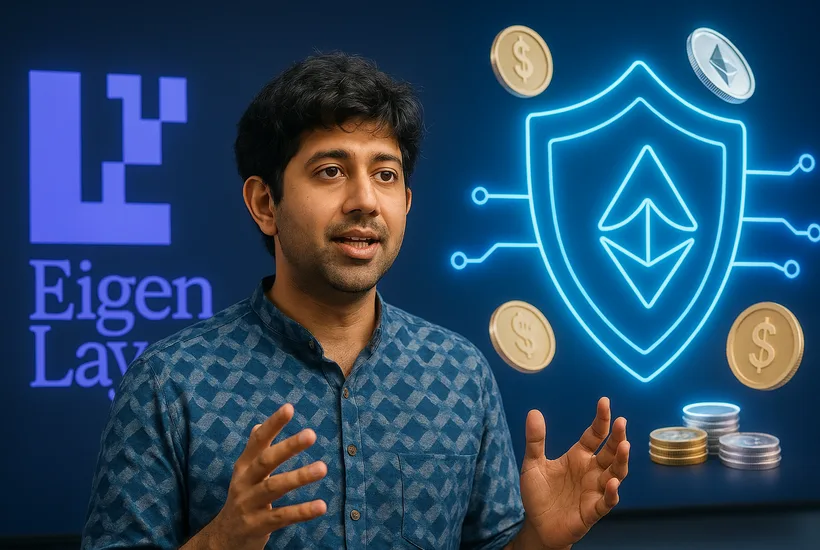-
Eigen Labs launches multichain verification, allowing AVS to run on L2s while maintaining Ethereum-level security.
-
CEO Sreeram Kannan calls it a “critical milestone” in building scalable decentralized infrastructure.
-
Feature debuts on Base Sepolia, with plans to expand to more blockchains and mainnet in Q3 2025.
Eigen Labs has achieved a major breakthrough in blockchain scalability with the launch of a new multichain verification feature that enables decentralized services to operate on layer-2 networks without compromising Ethereum-grade security.
The newly released upgrade allows Actively Validated Services (AVS) to function across multiple chains, starting with the Sepolia Testnet on the Base network. The feature is part of Eigen Labs’ broader mission to decentralize and scale verifiable infrastructure by syncing validator data—including stake weights, operator configurations, and slashing penalties—across all supported environments.
The company described the development as a “critical milestone” in its roadmap, noting that AVS no longer need to choose between high-security environments and high-throughput, low-cost chains. Instead, they can benefit from both, inheriting pooled security while expanding to faster networks.
Newsletter
Get weekly updates on the newest crypto stories, case studies and tips right in your mailbox.
Base was selected as the first integration partner due to its developer ecosystem and alignment with Eigen Labs’ app-layer vision. The company plans to expand the rollout to additional blockchains and expects to launch on mainnet in the third quarter of 2025.
EigenCloud extends reach; Push for scalable infrastructure
According to the team behind the protocol, this update enables EigenCloud to better support developers wherever they build, extending beyond the Ethereum mainnet to reach a truly multichain infrastructure.
The release comes as broader efforts across the blockchain space aim to improve core infrastructure. Hybrid blockchain, Build on Bitcoin recently implemented zero-knowledge (ZK) fraud proofs within an optimistic rollup framework, while the Ethereum Foundation has laid out a roadmap to deploy zkEVM at the mainnet level within one year, aiming to shift execution toward ZK-based security.













